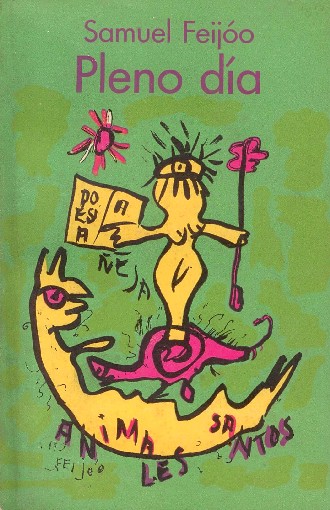4.1.1.22.7 The poetry collection “Pleno día” and others written by Samuel Feijóo until 1970

“Pleno día,” conceived between 1963 and 1964, constitutes a poetic piece of existential plenitude, revealing the poet’s overcoming of the lacerating conflicts that had determined, if not his fruitful relationship, then the ethics he had derived from his intellectual connection with the natural world. By simplifying his song, already endowed with an almost naked yet timeless lyricism, it achieves a truly popular root, as its verses seem to be in everyone’s mouth without claiming authorship.
For his part, “Musitaciones”, 1965-1966, recreates the topic of original innocence and the poet proclaims himself in that state of soul but with authenticity, a conduct free of prejudices that allows him to interact with all the spheres that make up the ecumenical, especially in the scope of his social and natural space, from the primordial purity of being.
In this sense, Samuel Feijóo increasingly embraces his own being from a sincerity that constitutes the unquestionable heritage of our poetry: innocence and helplessness thus become deeply moving poetic topics, from the emotion of the bard who is impressed by the slightest pain, desolate at its root.
Between 1967 and 1968, he wrote “In the Dark Deltas,” in which we also see the poet’s need to return to purity, whether that purity that rarely exists in the human soul or that which emanates directly from nature. Innocence, then, constitutes the paradise to which the poet, with his broken voice, seeks to return.
His collection of poems, “Caminos, polvos,” dates from 1969. The topic of nature is also present, where the poetic form becomes the background against which a discourse rises that does not fully reveal the mystery of the poet’s participation in his world. The most striking feature of this collection of poems is a movement of form that does not follow a predetermined metric structure, not even a rhythmic free verse.
During this period, he finally conceived “Versículos” (Versicles), in 1970, which constitutes one of the most profound and moving confessional works in the national tradition, where his feelings for the death of his wife elevate all the poetic substance accumulated up to that point. Here begins the final path of Feijóo’s poetics, where the waves of his feelings will determine his next poetic course.








